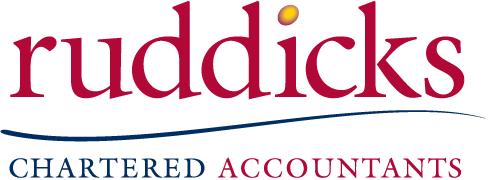Lodge on Time - Directors of a company can be personally liable for outstanding payments of Tax and Superannuation
There are 2 types of DPNs; the first, where the required lodgements have occurred but the debts remain unpaid (“Non lockdown DPN”) and the second, where neither lodgements nor payments have been made (“Lockdown DPN”).
Non-lockdown DPNs are issued to company directors that have lodged its business activity statements, instalment activity statements and/or superannuation guarantee statements within three months of the due date for lodgement, but the PAYG withholding and/or SGC debts remain unpaid. The notice gives directors 21 days to take certain actions (limited to either paying the debt or causing the company to be placed into voluntary administration or liquidation within 21 days), which results in the penalty being ‘remitted’ i.e. cancelled.
Lockdown DPNs are issued to company directors where a company has failed to lodge its business activity statements, instalment activity statements and/or superannuation guarantee statements within three months of the due date for lodgement. In this case, the penalty permanently “locks down” on the director personally and there is no ability to remit (i.e. cancel) the penalty, other than by paying the debt in full.
If companies use Ruddicks (or other accounting firms) as their tax agent, they are often allowed another month to lodge their BAS electronically. Using tax agents to lodge their BAS gives Directors the benefit of another month before the 3 month lockdown DPN period starts for some amounts.
Recovery of DPNs by the ATO
Directors can incur penalties equal to their company's
- unpaid PAYG withholding
- net GST (inclusive of luxury car tax and wine equalisation tax)
- superannuation guarantee charge.
A DPN is a notice the ATO gives you that allows them to recover the company's unpaid amounts.
The notice outlines the unpaid amounts and remission options available to you.
The ATO can recover the amounts of the director penalty by:
- issuing garnishee notices to company trade debtors or to the company’s or your financial institution
- offsetting any of your personal tax credits against the director penalties
- initiating legal recovery proceedings against you personally to recover the director penalty.
How a parallel liability works
Once DPNs have issued, the ATO may commence or recommence recovery action from each director personally, because these penalties are a parallel liability.
To recover the debt, the Commissioner can pursue either:
- the company; or
- the directors.
This means that any payment or credit applied to the company’s account or to a director’s account to reduce the penalty, will reduce the director penalty amount for the other directors and the company's corresponding liability for the same reporting period.
Key Takeaways for Directors
Some key takeaways for you to consider:
- Do not think the problem will go away if you ignore it!
- Pay your yearly ASIC fee and keep the data of your company current with their offices.
- Make sure you are lodging all required statements with the ATO within their due periods, even if you can’t pay the debt straight away.
- Seek extensions where necessary, it is far better to contact the ATO to notify them of delays or request an extension than to wait it out
- Treat your position with care and diligence, know your obligations and potential liabilities. If you are new or resigning as director then ensure you are fully aware of all current and outstanding ATO liabilities.
- We understand the ATO intends to increase the number of DPN’s they are sending and when a director receives a DPN the 21 days from the day it is issued may not be sufficient to take the necessary advice to deal with the problem.
If a company cannot pay the debt due to the ATO under the DPN then the DIRECTORS MUST SEEK PROFESSIONAL ADVICE WITHOUT DELAY! The appointment of an administrator to a company that cannot pay the ATO debt subject to the DPN may result in an outcome that saves the company and directors money compared to paying the DPN debt in full.
Need any help?
Contact your Ruddicks adviser who will be able to help you understand Directors Penalty Notices better.
Want to learn more?
DISCLAIMER:
Liability limited by a scheme approved under Professional Standards Legislation.
The content of this newsletter is general in nature. It does not constitute specific advice and readers are encouraged to consult their Ruddicks adviser on any matters of interest. Ruddicks accepts no liability for errors or omissions, or for any loss or damage suffered as a result of any person acting without such advice. This information is current as at 28 February 2023, and was published around that time. Ruddicks particularly accepts no obligation or responsibility for updating this publication for events, including changes to the law, the Australian Taxation Office’s interpretation of the law, or Government announcements arising after that time.
Any advice provided is not ‘financial product advice’ as defined by the Corporations Act. Ruddicks is not licensed to provide financial product advice and taxation is only one of the matters that you need to consider when making a decision on a financial product. You should consider seeking advice from an Australian Financial Services licensee before making any decisions in relation to a financial product. © Ruddicks 2023

